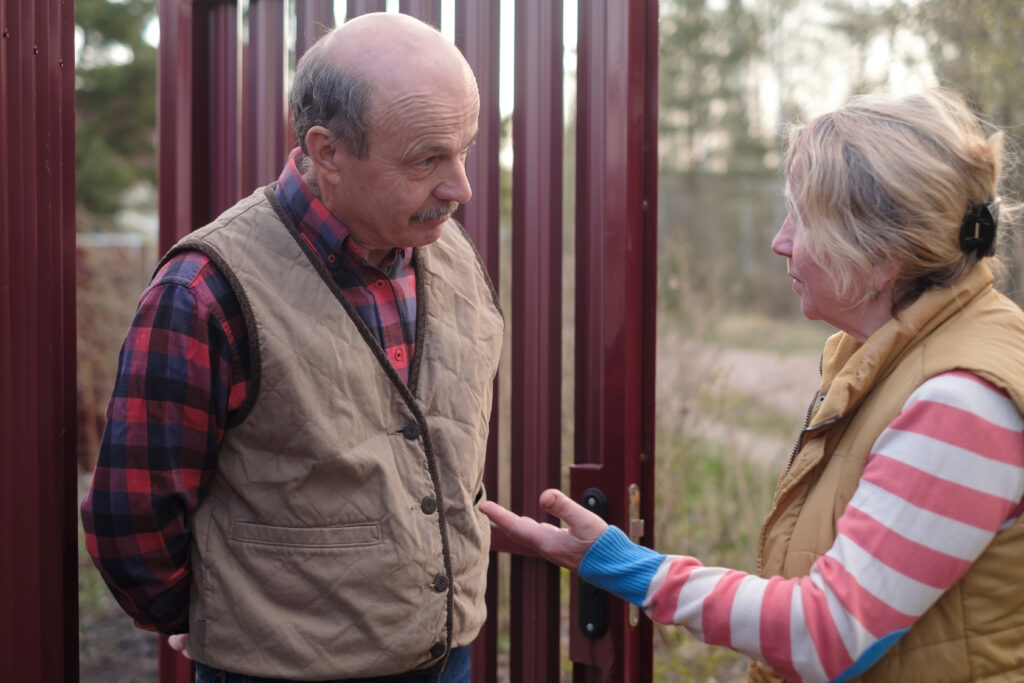Break these 13 unappealing habits now, or risk losing the strong friendships you’ve worked hard to build.

You may think your friendships are rock-solid, but if you’re guilty of certain unappealing habits, you could be unknowingly driving a wedge between yourself and the people you care about most. Friendships are living, breathing connections that require consistent care, trust, and respect to flourish over time. When we get too comfortable or unaware of our own behavior, even small missteps can lead to major cracks in the foundation we’ve built with our friends.
We’re diving deep into the bad behaviors that can quietly but powerfully erode even the strongest bonds. It’s not about being perfect; it’s about being mindful enough to recognize when your actions might be pushing people away. Learn how to break these destructive patterns and keep your friendships thriving—before it’s too late to repair the damage.
1. You Constantly One-Up Your Friends.

In conversations, it might feel natural to share your own experiences after hearing about someone else’s accomplishments, as stated by Shasta Nelson at Harvard Business Review. But when every exchange turns into an opportunity for you to “top” your friend’s story, it creates an uncomfortable competition rather than a supportive dialogue. Over time, your friends may start feeling like they’re in a constant rivalry with you, which isn’t the environment most people want in their close relationships.
Your friends want to feel celebrated, not overshadowed. If they can’t share their successes without you trying to outshine them, they’ll begin questioning whether you genuinely care about their happiness. Instead of trying to impress, practice listening with genuine enthusiasm and resist the urge to immediately shift the focus back to yourself.
2. You Dish Out Backhanded Compliments.

A compliment that masks a subtle jab may seem harmless or even funny in the moment, but it leaves a lingering sting that your friends won’t easily forget. Saying things like, “You look good—for once!” or “Wow, you actually did a good job,” undercuts any positivity you were hoping to convey. Over time, these disguised insults chip away at the sense of trust and safety within your friendships.
Friends need to feel that your words come from a place of sincerity and kindness, according to Dawn Nelson at Medium.com. When your compliments leave them second-guessing your true feelings, it undermines the entire dynamic of the relationship. Focus on offering genuine praise without any qualifiers or sarcasm, and watch how much more connected and appreciated your friends feel around you.
3. You’re Always Late or Flaky.

Life gets busy, and sometimes plans have to change—but if you’re consistently late, canceling, or rescheduling at the last minute, it sends a clear message that your friends’ time isn’t valuable to you. Over time, this can breed resentment and disappointment, making your friends think twice before inviting you along in the future.
Punctuality and reliability aren’t just about keeping a schedule; they’re about showing respect for the people you care about, as mentioned by Rachelle Isip at The Order Expert. When you make an effort to honor your commitments, you’re telling your friends that they matter. Even when things come up, communicating clearly and apologizing sincerely can go a long way in maintaining the strength of your connections.
4. You Gossip Behind Friends’ Backs.

It can be tempting to vent frustrations or share juicy stories, but when you gossip about your friends, you destroy trust—plain and simple. Even if the gossip seems harmless, it creates an underlying fear that you might be talking about them when they’re not around. Trust, once broken, is difficult to rebuild.
If your friends find out that you’ve been discussing their private matters or criticizing them to others, they may never feel fully safe with you again. Protect the sanctity of your friendships by refusing to engage in or spread gossip. Be the kind of friend who defends others behind their backs, not the one who throws them under the bus.
5. You Cling to Your Friends Like Saran Wrap.

Friendships thrive on mutual respect, including respect for personal space and autonomy. If you’re constantly texting, calling, or insisting on spending every moment together, you risk suffocating the relationship. Even the closest friends need time to themselves and room to nurture other parts of their lives.
Being overly dependent can create pressure and anxiety within the friendship, making your friends feel trapped rather than supported. Aim for a balance that allows for closeness without encroachment. Trust that your friendship is strong enough to withstand periods of distance without falling apart.
6. You Take But Never Give.

Friendships should be a two-way street, where both people feel seen, supported, and valued. If you find yourself constantly leaning on your friends for advice, favors, or emotional labor without offering the same in return, resentment will eventually take root. Nobody wants to feel like they’re being drained by someone who only reaches out when they need something.
Take stock of how often you show up for your friends, not just when it’s convenient for you, but when they need you too. Small gestures of support, encouragement, or simply being present can restore the sense of balance and appreciation that keeps friendships healthy and fulfilling.
7. You’re Judgmental and Critical.

Friendships are supposed to be safe harbors, not battlegrounds of criticism and judgment. When you regularly find fault with your friends’ choices, lifestyles, or opinions, you create an atmosphere where they feel defensive rather than accepted. Over time, your friends may feel they have to walk on eggshells around you.
Criticism—even when intended to be “helpful”—often feels like rejection. True friends offer support and understanding, even when they don’t necessarily agree. Focus on offering encouragement instead of judgment, and remember that your friends’ lives are theirs to live, not yours to approve.
8. You’re Constantly Negative.

Everyone goes through tough times, and a good friend is there to listen and offer comfort. But if negativity becomes your constant state—if every conversation is weighed down by complaints, bitterness, or cynicism—your friends will eventually seek distance to protect their own emotional health. It’s draining to always be surrounded by gloom.
While you should absolutely feel safe sharing your struggles, try to balance your outlook by also acknowledging what’s going well or showing gratitude for the good things. Your friends want to uplift you, but they also want to feel uplifted when they’re around you. A little positivity can go a long way.
9. You’re a Terrible Listener.

Conversations should be a two-way street, with both people feeling heard and valued. If you’re constantly interrupting, steering the conversation back to yourself, or visibly zoning out when your friends are speaking, you’re sending the message that their thoughts and feelings don’t matter to you. Few things are more alienating.
Active listening requires presence and intention. It means making eye contact, nodding, asking thoughtful questions, and resisting the urge to jump in with your own story. When you genuinely listen, you deepen the trust and intimacy that form the foundation of lasting friendships.
10. You Overshare on Social Media.

In today’s hyper-connected world, it’s easy to forget that not everything needs to be broadcast online—especially details about your friends’ lives. Posting about private moments, venting grievances, or revealing sensitive information can make your friends feel betrayed and exposed. Privacy is a cornerstone of trust.
Before you post anything involving your friends, ask yourself whether they would be comfortable with it. When in doubt, ask for permission first. Respecting your friends’ boundaries in the digital realm shows that you value their trust and honor the sacredness of your shared experiences.
11. You’re Unreliable and Untrustworthy.

Broken promises, forgotten plans, and betrayals—big or small—chip away at the trust that friendships depend on. When your friends can no longer count on you to do what you say you’ll do, they’ll start protecting themselves by relying on you less and letting you drift further from their inner circle.
Reliability is about showing up consistently, even when it’s inconvenient. It’s about being the friend who can be counted on, not just when things are easy, but especially when things are hard. Every time you follow through, you reinforce the bond of trust that keeps friendships alive.
12. You’re Easily Jealous or Possessive.

Friendships should be built on mutual respect and support, not control and resentment. If you find yourself getting jealous when your friends spend time with others or feeling possessive of their attention, it signals an unhealthy dynamic that can suffocate the relationship. True friends celebrate each other’s connections, not compete for them.
Jealousy creates an environment of guilt and obligation, which no one enjoys. Focus instead on trusting the strength of your bond and recognizing that your friends’ other relationships don’t diminish the value of yours. Healthy friendships are expansive, not restrictive.
13. You Don’t Respect Boundaries.

Boundaries are essential for maintaining healthy relationships, yet they’re often overlooked or dismissed when we become too comfortable. If you repeatedly push your friends to share more than they’re ready to, invade their personal space, or ignore their requests for time alone, you’re signaling that your needs matter more than theirs.
Respecting boundaries shows that you honor your friends as whole, autonomous individuals with needs that may differ from yours. It builds a foundation of mutual trust and respect that allows the friendship to grow organically. When you honor boundaries, you create a safe space where true connection can flourish.
